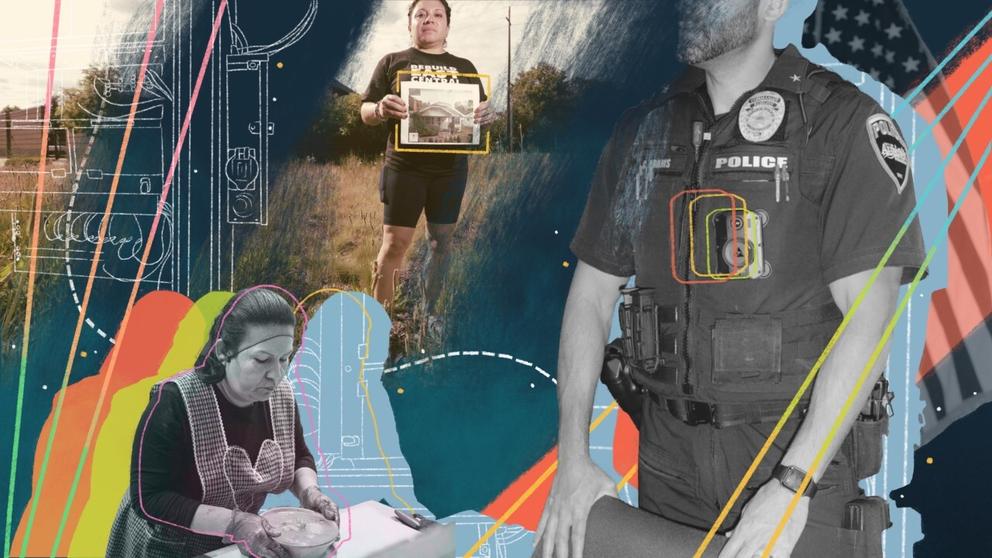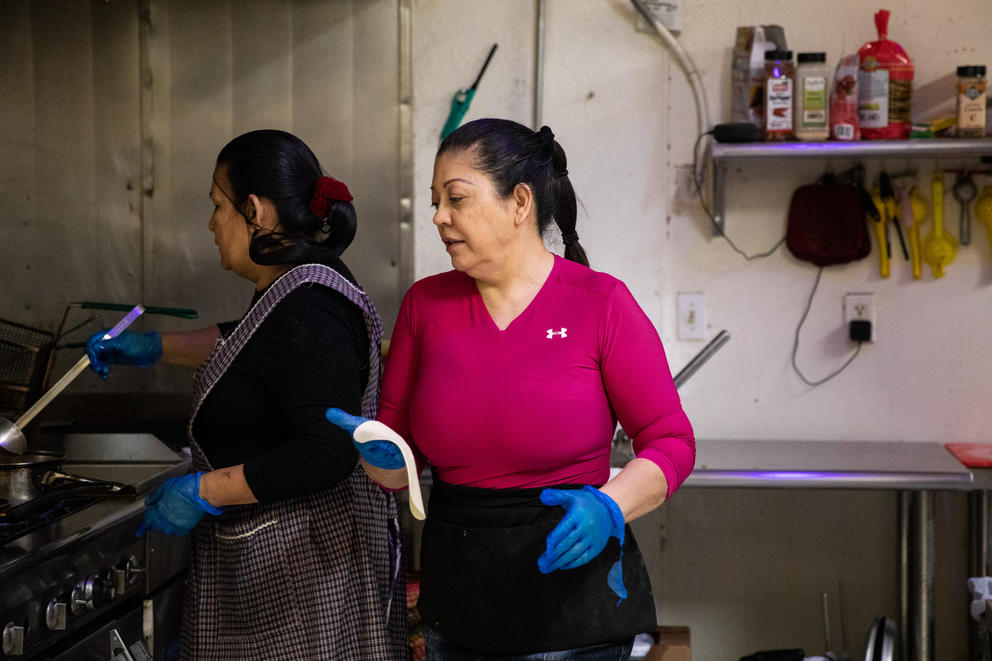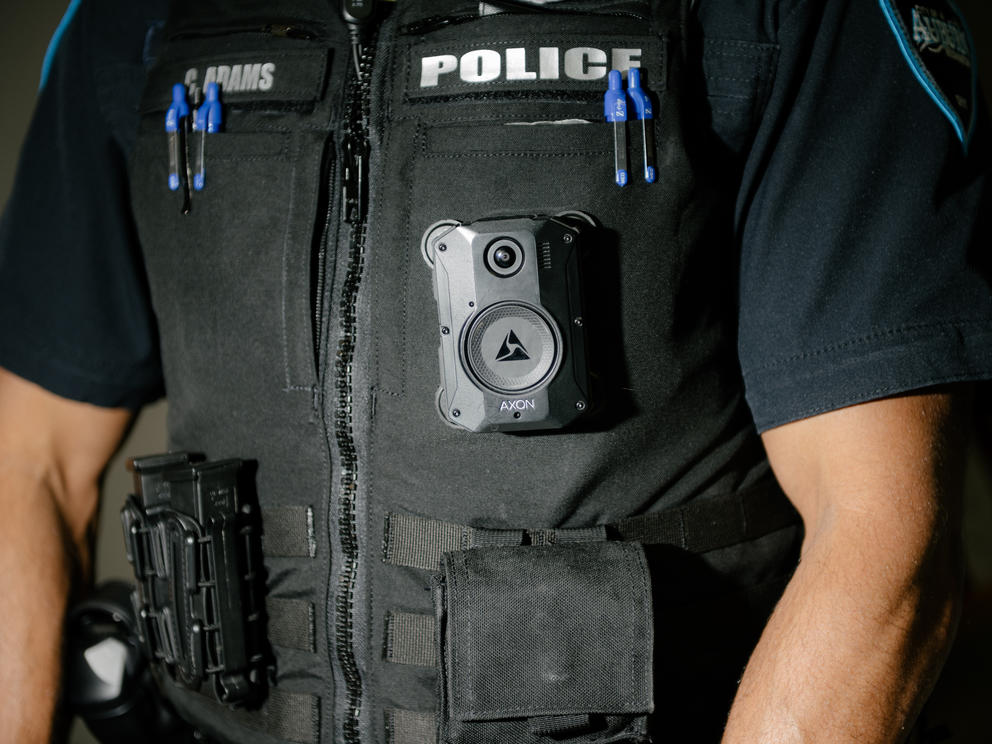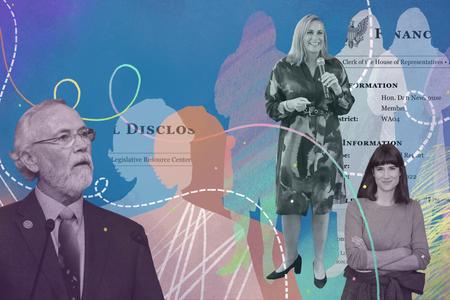We have centered much of our coverage on equity outcomes and rural news deserts, exploring how relief programs have distributed aid to community-based nonprofits, tribal programs, city and county governments, immigrants and small businesses. In addition to on-the-ground reporting from Aberdeen to Spokane, we have published government budget records and data in our Follow the Funds guide so you can look up federal spending in your hometown.
Our reporting remains free to read and republish. Many regional news outlets have shared our work this past year or cited it in editorials calling for improvements to recovery efforts. Readers have shared their questions and served as the catalyst for some of our investigations. We also received an award, as well as increased grant funding, to continue and deepen this reporting while expanding our investigative coverage.
It’s been a big year. Here’s a look at some of our top stories and most impactful coverage.
Garret Brown charges his Tesla at an EV station in Cle Elum. “As an electric vehicle owner and driver you pre-plan your charging. You arrive at the charging station, you plug it in, you go do what you're going to do. It's 10 seconds,” Brown said. “And you come back to the car and it's done or you got enough charge to go to your next location.” (Lizz Giordano for Crosscut)
Disparities, infrastructure and transparency
Equity of access: Many federal relief programs drew criticism over complex barriers in the application process as agencies tried to balance access for those in need against fraud concerns. Small businesses, artists, immigrants and nonprofits repeatedly told our reporters that they faced overwhelming red tape, unrealistic requirements, tight deadlines and other systemic challenges that kept relief money out of reach. Community advocates said pandemic aid often went to entities that already had the resources to navigate such hoops.
- Small and rural WA restaurants left behind by SBA relief program
- Lawsuits over venue relief grants help some applicants secure millions
- Why some WA nonprofits face high barriers to federal relief
- $340M WA immigrant relief fund plagued by monthslong delays
Spending big and small: As federal dollars have flooded into the state, our reporters have scrutinized how local governments have spent those historic levels of financial support and how state agencies have planned to invest in infrastructure across Washington. We found cities spending millions in pandemic funds on police equipment, significant challenges to expanding electric vehicle charging stations and other issues.
Impact, reach and engagement
Power of the press: At its best, investigative journalism holds institutions accountable and empowers positive change. This is the most obvious kind of impact that we look for, and we saw some this past year.
Reporter Brandon Block’s work this year on local government spending helped draw attention to the transparency concerns around “revenue replacement” budgeting, raising questions with the Tri-City Herald editorial board about how their public officials had allocated federal funding. The Herald then followed up with its own localized reporting on how those dollars were being used.
When reporter Margo Vansynghel heard King County arts organizations had been waiting months for promised relief grants, she quickly identified an administrative bottleneck that had kept many groups from receiving their funding. Officials got the money moving within days of her reporting, and pledged to review their grant process.
“The money came through!” one arts leader wrote to Vansynghel. “Your article gave it the extra push they needed. I gasped out loud when I checked our bank account as I’ve been checking for many months! ... Grateful for your reporting!”
Block has also closely covered the state’s problematic objection process for broadband grants, which has given private telecoms a powerful voice over competing public networks. The Seattle Times editorial board cited his reporting as part of its support for changing objection rules.
Expanding our reach: As part of our republishing model, Crosscut offers our investigative reporting free to publish by other news outlets. Recovery Watch stories have run in local editions of Spokane’s alt-weekly Inlander, the Yakima Herald-Republic and other papers. Our stories have also run online at InvestigateWest, The Columbian in Vancouver, The Wenatchee World, the Tri-City Herald, the Kitsap Sun, KXLY News in Spokane and other outlets.
Our team has also gone on the air to share context on our reporting with KUOW and Oregon Public Broadcasting.
Responsive to readers: Some of our best reporting starts with tips or questions from our readers. A woman’s frustrations with accessing rental assistance sparked this story on cracks in the King County aid program. Other questions have fueled our coverage of safety net reductions and lost rental assistance money. An anonymous tip also led us to a controversial board decision to use COVID-19 relief to trigger management bonuses at one public hospital.
Dozens of readers have submitted comments or questions on the project in recent months.
“GOD BLESS YOU FOR DOING THIS!” reader Barbara B. wrote in March. “I wanted to tell you how much I appreciate that you’ve taken this on. It needs to be heard, both for the way it has worked and is helping and for the ways in which it’s been abused. Not to be cynical, but with all that money, abuse is a given. Good luck!”
Another reader, Patricia B., wrote in August: “I am blown away by your strategy for having an investigative reporter follow the federal funds. The in-depth and wide reaching reporting that Brandon Block is doing is change-making. Thank you so much for supporting this reporting from all over our state.”
Crosscut welcomes reader feedback via Hearken comment boxes or email. You can find more about how to submit investigative tips at the Recovery Watch site. You can email Investigations editor Jacob Jones directly at jacob.jones@crosscut.com.
Learn more about the ongoing reporting work and tools behind our coverage by signing up for the Crosscut Investigates newsletter.
An award, new grant support and how you can help
In recognition of Crosscut’s work to share investigative records and data directly with readers, the Washington Coalition for Open Government presented the newsroom with a Key Award this year for “noteworthy efforts to unlock information for the public benefit.” WashCOG President Mike Fancher praised the Recovery Watch project for sharing access to records and hosting an online workshop to explain how people could search for information on their own communities.
“It’s just extraordinary work,” Fancher said during the December award presentation. “Your reporting laid the foundation for not only numerous news stories, … but we especially appreciate that you posted those documents and databases without a paywall so the public could explore for themselves. That kind of public engagement is probably the most important element of the work that we do and the work that you do.”
Crosscut previously received a WashCOG Key Award in 2021 for a statewide investigation into police credibility issues.
“Not many people get back-to-back awards,” Fancher noted, “so congratulations for that.”
The Washington Recovery Watch project was funded this year with $200,000 in support from the Group Health Foundation. The Foundation has recently approved another $200,000 to continue supporting the project’s coverage through 2023.
Crosscut’s investigative desk has also received $400,000 in grant funding from the Ballmer Group to expand our staff and accountability reporting over the next two years. We plan to use this money to launch a new statewide investigative project on workplace safety and oversight. Stay tuned for more on that.
We have many stories we have already started working on for 2023. If you would like to help support our public-interest accountability reporting, please share our coverage with friends, send us your questions and sign up for our newsletter.
You can also support Crosscut with a one-time donation or ongoing paid membership.










